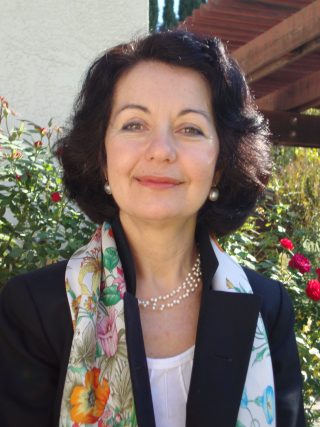“Grazia Deledda e la scrittura pensante ‘al confine'”

Versione inglese sotto
“Che cosa faccio? Penso ….” Così scrive la giovane Deledda ad una sua autorevole amica nel 1895. Avida lettrice, in parte autodidatta, della letteratura e della filosofia europea, Deledda si dimostrerà capace di “metabolizzare” (Cerina), aldilà delle tendenze culturali a lei contemporanee, le tematiche più inquietanti del moderno, dal nichilismo nietzscheano al pessimismo schopenhaueriano. Il mio intervento raccoglie l’invito, più volte esplicitato dall’autrice in sede epistolare, a esplorare lo sviluppo del suo pensiero. A questo scopo mi soffermerò su alcuni testi, sia novellistici che romanzeschi, generalmente trascurati dalla critica e tuttavia particolarmente rappresentativi di questa coscienza metariflessiva, sulla quale si fonda la capacità deleddiana di presentare la Sardegna come “sardità,” ovvero come sineddoche della crisi etica ed epistemologica del soggetto moderno. La rappresentazione deleddiana della crisi sub specie Sardiniae rende l’insularità zona di confine in cui l’autrice sovverte la gerarchia tra il margine e il centro della compagine culturale con forte pregnanza analitica e creativa. Questa scrittura pensante “al confine” destabilizza paradigmi di cultura e di genere e costituisce il filo deleddiano che percorre la tela ricca e complessa della narrativa sarda al femminile moderna e contemporanea.
Per quale ragione la scrittrice Deledda insiste sulla sua identità di “pensatrice”? Si può ravvisare proprio in questa sua consapevolezza intellettuale la radice più profonda – e fruttuosa – della identità “s-confinante” della scrittura deleddiana? Come risponderebbe Deledda alla domanda che aveva guidato Hannah Arendt nel suo percorso dalla vita activa alla vita contemplativa, ovvero: “Che cosa ‘facciamo’ quando non stiamo facendo altro che pensare?”.
Proprio nello spirito arendtiano tenterò di suggerire risposte a questi interrogativi sul significato della narrativa deleddiana come scrittura pensante “al confine.” Il punto di riferimento delle mie considerazioni sarà il pensiero della differenza sessuale volto alla ricostruzione di una linea femminile dell’ordine concettuale e simbolico della filosofia occidentale. In questo contesto teorico l’opera deleddiana articola l’idea della poíesis come espressione che congiunge il pensare e il fare, ponendosi e pensando “al confine” come condizione esistenziale della modernità.
“Grazia Deledda’s Reflective Writing ‘at the border'”
“What am I doing? I am thinking…,” young Deledda writes in response to one of her authoritative friends in 1895. An avid reader, albeit in part self-taught, of European literature and philosophy, Deledda will be able to “metabolize” (Cerina) the most disquieting modernist themes, from Nietzsche’s nihilism to Schopenhauer’s pessimism, beyond the prevailing cultural trends of her time. My contribution welcomes the author’s repeated invitation to explore the development of her thought. To this end we will dwell on some short stories and a novel generally neglected by critics and yet particularly representative of Deledda’s metareflective counsciousness. For this intellectual awareness empowers Deledda to present Sardinia as “Sardinian-ness,” that is as a synecdoche of the ethical and epistemological crisis of the modern subject. Deledda’s representation of the modern crisis sub specie Sardiniae depicts insularity as a borderland that allows the subversion of hierarchies between margin(s) and center(s). While destabilizing gender and cultural paradigms, this reflective writing “at the border,” weaves a continuous thread throughout the rich and complex fabric of modern and contemporary Sardinian women’s writing.
For what reason does Deledda insist on her identity as (female) thinker? Could we recognize in this intellectual self-awareness the deepest, and perhaps most fruitful, root of Deledda’s writing in its transgressive ability to go beyond cultural and gender boundaries? How would Deledda tackle the question that had guided Hannah Arendt in her theoretical journey from vita activa to vita contemplativa?, that is, “What are we ‘doing’ when we do nothing but think?”
In the spirit of Arendt’s query I will analyze the significance of Deledda’s narrative as reflective writing “at the border.” The theoretical framework of my considerations stems from the thought of sexual difference and its investigation of a female line in the symbolic order of western philosophy. In this context Deledda’s writing articulates a concept of poíesis that intertwines thinking and doing in its reflection “at the border” as the existential condition of modernity.
Brief Biography:
Dr. Margherita Heyer-Caput (University of California, Davis) will deliver her Keynote Address on Saturday June 23,2018. Margherita Heyer-Caput completed her education in Italy (Laurea in Filosofia, 1980, University of Turin) and the United States (Ph.D. in Romance Languages and Literatures, 1993, Harvard), and taught for several years at the University of Berne, Switzerland, and various universities of the East Coast. Her research and teaching areas include the Italian literature of the twentieth and nineteenth centuries, with particular attention to the intersections between literature and philosophy, Italian women’s writing, Italian and Italian American cinema. Following Ragione ed esistenza nell’opera di Franz Kafka e Per una letteratura della riflessione: elementi filosofico-scientifici nell’opera di Luigi Malerba, Professor Heyer-Caput published her 2008 book, Grazia Deledda’s Dance of Modernity (University of Toronto Press), which was awarded the prestigious 2009 Ennio Flaiano International Prize for Italian Studies for its innovative interpretation of the 1926 Literature Nobel Prize laureate Grazia Deledda in the context of philosophical modernity. Additionally, she has published on a number of authors, from Giovanni Boccaccio to Dacia Maraini, and filmmakers, from Martin Scorsese to Ferzan Ozpetek. She is the recipient of the 2005 Premio Letterario Nazionale Grazia Deledda and the 2015 Phi Beta Kappa Northern California Association’s Excellence in Teaching Award. Founded at the College of William and Mary in 1776, Phi Beta Kappa is the oldest honors society for the liberal arts and sciences and one of the most prominent academic honors societies in the nation. Most recently Dr. Heyer-Caput has been honored with the Premio A.I.D.D.A. 2016 (Delegazione Cagliari, Italy) award for her contributions to Italian studies and raising awareness of women writers through her scholarship. Founded in Turin, Italy, in 1961, and a member of the global network F.C.E.M., (Les Femmes Chefs d’Entreprises Mondiales), A.I.D.D.A. (Associazione Imprenditrici e Donne Dirigenti d’Azienda) is the first Italian organization with the specific objective of promoting and supporting female professionals.